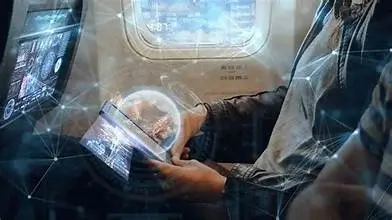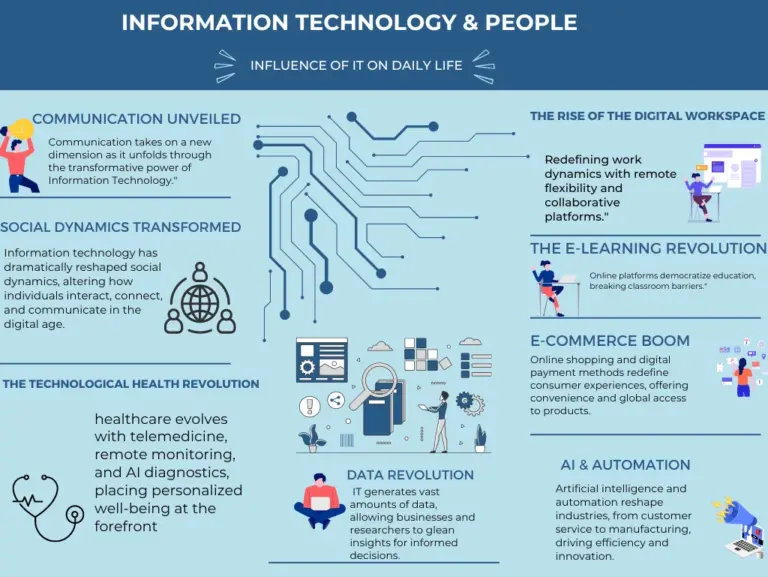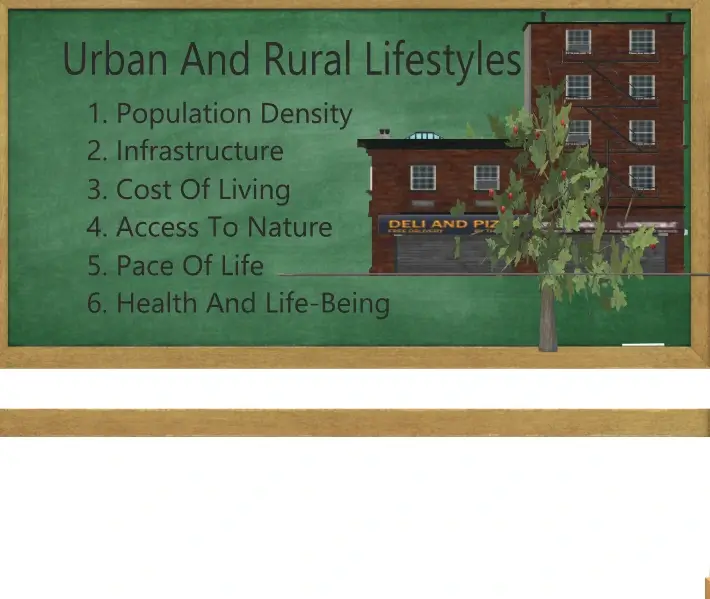The Intersection of Technology and Tourism: Transforming Travel Experiences
The symbiotic relationship between technology and tourism has ushered in a new era, fundamentally reshaping the way we explore and experience the world. Technological advancements have not only made travel more accessible but have also enriched every facet of the tourism industry, from planning and booking to on-the-ground experiences and post-trip reflections.
Virtual Exploration: Unveiling Destinations Digitally
The marriage of Virtual Reality (VR) and Augmented Reality (AR) technologies has revolutionized the way prospective travelers explore and plan their journeys. Virtual tours and immersive experiences powered by VR and AR have become invaluable tools in the travel industry, offering potential tourists a virtual gateway to their chosen destinations. These technologies facilitate decision-making by providing an engaging preview of attractions, hotels, and local culture, ushering in a new era of interactive travel planning.
VR and AR technologies transport users to distant locations, allowing them to virtually walk through historical landmarks, meander along picturesque streets, and absorb the local ambiance—all from the comfort of their homes. This immersive experience not only aids in visualizing potential travel destinations but also contributes to a more informed decision-making process. Travelers can explore hotels, inspect room layouts, and virtually step into iconic attractions, fostering a sense of connection with their future travel experiences.
Moreover, these technologies provide a digital bridge between the traveler and the destination, allowing for an interactive exploration that goes beyond static images and text descriptions. As a result, the planning phase becomes more than a mere logistical exercise; it transforms into a dynamic and engaging journey that sparks anticipation and excitement for the upcoming adventure.
Online Travel Agencies (OTAs) and Booking Platforms: Navigating Seamless Travel Arrangements
The rise of Online Travel Agencies (OTAs) and booking platforms, exemplified by industry giants like Expedia, Booking.com, and Airbnb, has reshaped the landscape of travel logistics. These platforms serve as comprehensive hubs where travelers can seamlessly navigate and orchestrate every aspect of their journeys, from flights and accommodations to activities and experiences.
Gone are the days of laborious comparison shopping and manual booking arrangements. The integration of advanced algorithms and user-friendly interfaces on these platforms enables travelers to effortlessly compare prices, read authentic reviews, and make informed decisions with just a few clicks. The ease and efficiency afforded by these platforms not only save time but also empower travelers to curate personalized itineraries that align with their preferences and budgets.
The wealth of information available on OTAs ensures that travelers can make well-informed choices, relying on the collective experiences and insights of a global community of fellow explorers. The convenience of real-time updates and instant confirmations enhances the overall booking experience, providing a stress-free process for travelers to secure accommodations, flights, and activities—all within the digital realm.
In essence, the synergy between technology and travel planning has not only made exploration more accessible but has elevated the entire journey, transforming it into a dynamic and immersive experience right from the initial spark of inspiration to the final confirmation of bookings. As these technologies continue to evolve, the future of virtual exploration and seamless bookings promises even more innovation and convenience for the global community of adventurers.
Smart Travel: A Smart Relation Between Technology and Tourism
In the arena of modern travel, the fusion of mobile apps and navigation tools has revolutionized the way we navigate and explore unfamiliar territories. Apps like Google Maps and Waze have become indispensable companions for travelers, providing real-time directions, traffic updates, and local insights. The efficiency they bring to exploration is unparalleled, offering users a seamless and stress-free means to navigate through cities, discover hidden gems, and find their way to desired destinations.
With the help of technology and tourism, Google Maps, for instance, offers detailed maps, turn-by-turn navigation, and even offline features, ensuring that travelers can confidently traverse unknown landscapes without the fear of getting lost. Waze, on the other hand, leverages community-driven data to provide dynamic, real-time traffic information, suggesting optimal routes and helping users avoid congestion. This integration of technology not only streamlines the journey but also adds an element of local knowledge to the traveler’s experience.
Language barriers, often a significant challenge in travel, have been effectively dismantled by language translation apps, with Google Translate leading the way. These apps facilitate communication between tourists and locals who speak different languages, fostering a more profound cultural exchange. Travelers can input text or use the camera function to translate signs, menus, or spoken words instantly. This not only opens up avenues for meaningful interactions but also contributes to a smoother travel experience, eliminating potential misunderstandings and enhancing the overall enjoyment of the journey.
Moreover, the role of language translation apps goes beyond mere communication; they serve as cultural bridges, allowing travelers to engage more authentically with the local environment. The ability to understand and be understood in a foreign land fosters a sense of connection and appreciation for diverse cultures. As a result, the travel experience becomes enriched, and barriers that might have hindered exploration and interaction are broken down.

In essence, these mobile apps and navigation tools redefine the traveler’s experience, providing not just directions but a digital companion that guides and informs. They embody the seamless integration of technology into the travel narrative,
enhancing not only the practical aspects of navigation but also the cultural and interpersonal dimensions of the journey. As technology continues to advance, one can anticipate further innovations that will continue to shape and elevate the way we explore the world.
Data Analytics and AI: Elevating Personalized Travel Experiences
In the dynamic landscape of modern technology and tourism, the synergy between Data Analytics and Artificial Intelligence (AI) has emerged as a transformative force, reshaping the way travelers plan and experience their journeys. The amalgamation of these technologies goes beyond mere convenience, delving into the realm of personalization to cater to the unique preferences and interests of each traveler.
Data Analytics, fueled by the vast pool of travel-related data, allows for the extraction of valuable insights. AI algorithms then leverage this data to provide travelers with tailor-made recommendations. This extends from suggesting personalized itineraries based on past travel behaviors, preferred activities, and historical preferences to recommending specific restaurants, attractions, and even cultural events. The result is a travel experience finely tuned to individual tastes, enhancing overall satisfaction and creating memorable adventures.
One notable application of AI in travel is the utilization of chatbots and virtual assistants. These AI-driven interfaces engage with travelers, helping them navigate choices, answer queries, and provide real-time assistance. The ability to comprehend natural language and adapt to user preferences ensures a seamless interaction, making the travel planning process not only efficient but also engaging.
Location-Based Services (LBS): Navigating Travel with Precision
Location-Based Services (LBS) technology represents a pivotal advancement in the realm of travel technology, introducing a new layer of personalization by harnessing the power of geospatial data. By integrating GPS technology and data analytics, LBS facilitates a targeted and context-aware approach to enhancing the on-the-go experiences of travelers.
Businesses within the travel industry leverage LBS to send precisely tailored offers and information to users based on their real-time location. Imagine wandering through a vibrant city, and suddenly your smartphone buzzes with a notification offering discounts at a nearby café or tickets to an attraction you’re passing by. This level of personalization is made possible by LBS, enriching the travel experience by providing travelers with promotions, discounts, and relevant information about nearby attractions.
Moreover, LBS enhances safety and navigation, helping travelers find their way in unfamiliar environments. Whether it’s discovering hidden gems in a neighborhood or receiving alerts about local events, LBS ensures that travelers are not just passive observers but active participants in the vibrant tapestry of their destination.
In essence, the marriage of Data Analytics and AI, along with the strategic implementation of Location-Based Services, marks a pivotal moment in travel technology. It goes beyond mere convenience, fostering a travel experience that is intuitive, personalized, and deeply resonant with the individual preferences and needs of each explorer. As these technologies continue to advance, the future of travel holds the promise of even more sophisticated, seamless, and enriching journeys for globetrotters around the world.
Smart Hotels and IoT: A Tech-Infused Hospitality Revolution
The advent of the Internet of Things (IoT) has ushered in a new era of sophistication in the hospitality sector, transforming traditional hotels into smart, interconnected spaces that cater to the evolving needs of modern travelers. The integration of IoT devices within hotel infrastructure is not just a technological novelty; it represents a fundamental shift in the way guests experience accommodation.
In smart hotels, IoT devices seamlessly connect various elements, offering guests unprecedented control and personalization. Smart room controls allow occupants to adjust lighting, temperature, and even window blinds through intuitive interfaces, often accessible via smartphone apps or in-room tablets. This level of automation not only enhances comfort but also contributes to energy efficiency, aligning with sustainable practices.
One standout application of IoT in smart hotels is the implementation of keyless entry systems. Guests can use their smartphones as digital keys, eliminating the need for physical key cards. This not only streamlines the check-in process but also enhances security by reducing the risk of key card theft or loss. The convergence of IoT and hospitality technology ensures that guests experience a seamless blend of comfort, convenience, and customization throughout their stay.
Blockchain for Security: Fortifying Trust in Travel
Blockchain technology has emerged as a game-changer in the travel industry, particularly in ensuring secure and transparent transactions. In the context of hotels and accommodation, blockchain provides a robust framework for enhancing security, trust, and efficiency in various aspects of the guest experience.
One prominent application of blockchain is in secure online payments. The decentralized nature of blockchain ensures that financial transactions are tamper-resistant and transparent, reducing the risk of fraud. Guests can make payments with confidence, knowing that their financial data is stored in an encrypted, immutable ledger.
Blockchain also contributes to streamlined identity verification processes. Traditional check-in procedures often involve sharing sensitive personal information. However, blockchain enables a secure and decentralized identity verification system, reducing the need for guests to repeatedly provide sensitive details. This not only enhances privacy but also mitigates the risks associated with centralized databases.
Moreover, the transparent and unalterable nature of blockchain records can be leveraged to verify the authenticity of online reviews and ratings. This ensures that travelers can make informed decisions based on reliable and unmanipulated feedback, fostering a sense of trust in the booking process.
In essence, the integration of IoT in smart hotels and the adoption of blockchain technology in the hospitality sector mark significant strides toward enhancing the security, efficiency, and overall guest experience. As technology continues to evolve, these innovations are poised to redefine the standards of hospitality, offering guests a seamless and secure environment that adapts to their preferences and prioritizes their safety and peace of mind.
Sustainable Tourism:
- Tech Solutions for Sustainable Travel: Technology plays a crucial role in promoting sustainable tourism practices. From carbon footprint calculators to apps highlighting eco-friendly accommodations and transportation options, technology empowers travelers to make environmentally conscious choices.
- Digitalization of Documentation: The shift towards digital passports and travel documents reduces paper usage and contributes to eco-friendly travel practices.
Conclusion
As technology continues to evolve, its impact on the tourism industry remains dynamic. The fusion of innovation and travel not only enhances convenience but also fosters a deeper connection between travelers and the destinations they explore. However, it is essential to balance technological advancements with ethical considerations to ensure that the integration of technology in tourism aligns with sustainable and responsible travel practices.






